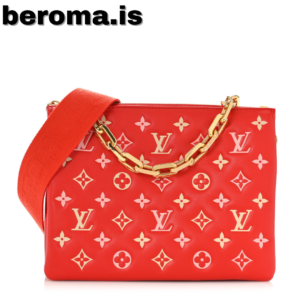The allure of designer brands is undeniable, with their markers of luxury often serving as status symbols and statements of personal style. However, this desire for high-end fashion has given rise to a clandestine industry that produces uncannily accurate replicas, dubbed ‘super fake bags.’ In the United Kingdom, the market for these goods is on the ascent, leaving in its wake a trail of complex ethical dilemmas and economic repercussions. This blog navigates the captivating yet treacherous world of super fake bags, unravelling their impact on consumers, the fashion industry, and ethical considerations, while offering an insightful path toward informed fashion choices.
The Counterfeit Conundrum in Fashion
The global luxury counterfeit market is a multi-billion-dollar industry, with counterfeit luxury handbags accounting for a significant portion of these transactions. What appears to be a harmless pursuit of recreating coveted designs comes with a myriad of ethical and legal implications. From violating trademarks to potential links to organized crime, counterfeit fashion items represent a significant challenge to the integrity of the legitimate industry.
Understanding the Allure of Luxury
The Psychology of Possession
The allure of luxury is deeply rooted in psychological factors such as the need for self-esteem, belongingness, and self-actualization. Possession of luxury items often fulfills a desire for recognition and validation within one’s social circles. Brands like Louis Vuitton, with their rich history and iconic designs, tap into these human needs, creating a strong emotional pull towards their products.
The Exclusivity Equation
What makes luxury goods even more appealing is their scarcity. Limited edition releases and the exclusivity of certain designs can drive up desirability. In a society where consumerism and image play a significant role, owning an exclusive luxury item can be synonymous with social standing and personal accomplishment.
The Rise of Super Fake Bags in the UK
Defining “Super Fakes”
‘Super fake’ is a term used to describe counterfeit goods that are nearly indistinguishable from the original. These items are meticulously crafted, replicating the most intricate details of the authentic product, from the stitching to the branding, often with top-quality materials. Unlike traditionally poor-quality counterfeits, super fakes are engineered to deceive even the most discerning eye.
Accessibility and Affordability
The proliferation of e-commerce has made the distribution of super fake bags more accessible than ever. Online marketplaces offer a veil of anonymity for sellers and convenience for buyers. Additionally, the significantly lower prices of super fakes make designer-inspired fashion available to a much broader audience, albeit at the expense of the original designers.
The Real Cost of Super Fakes
Buyer’s Beware: Risks and Consequences
Purchasing and owning counterfeit goods come with more than just the risk of a legal penalty for intellectual property theft. Consumers of super fake bags often find themselves with subpar products that quickly deteriorate, leading to a diminished perception of brand quality. There’s also potential damage to personal identity and reputation, as knowingly using counterfeit goods can tarnish one’s integrity.
Economic and Ethical Implications
The financial repercussions of the counterfeit industry are twofold. Firstly, authentic luxury brands lose sales and the value of their intellectual property is undermined. Secondly, the economy is impacted by the loss of jobs in the genuine manufacturing sector. Ethically, the counterfeiting of luxury goods is a form of theft that violates the creative and intellectual efforts of designers and artisans.
Navigating the Ethical Dilemma
Promoting Ethical Fashion Choices
To counter the spread of counterfeit luxury goods, consumers are encouraged to make more ethical fashion choices. This could involve supporting brands that have transparent supply chains and ethical production practices. By valuing quality over quantity, consumers can invest in items that not only reflect their style but also their values.
Exploring Alternative Markets
For those who desire luxury without the hefty price tag, the pre-loved and second-hand markets offer authentic products at reduced prices. This not only ensures that luxury brands are compensated for their designs but also aligns with the principles of sustainability by extending the life cycle of products.
Conclusion: Making Informed Choices in Fashion
The world of fashion is a vibrant reflection of creativity and self-expression. Yet, as we have seen, the allure of luxury can sometimes lead to ethical crossroads. Engaging with fashion in a meaningful and responsible way requires an awareness of the impact our choices make on the broader industry and society at large. By making informed decisions, we can cultivate a fashion landscape that celebrates authenticity, sustainability, and creativity, supporting designers and artisans in their crafts. It is through these choices that we express not just our personal style, but also our values as conscious consumers.
It’s a call to action for consumers and industry stakeholders alike to engage in open dialogue, seek education, and champion ethical conduct. By doing so, we take the first steps to preserve the integrity of the fashion industry and the creative spirit it represents.